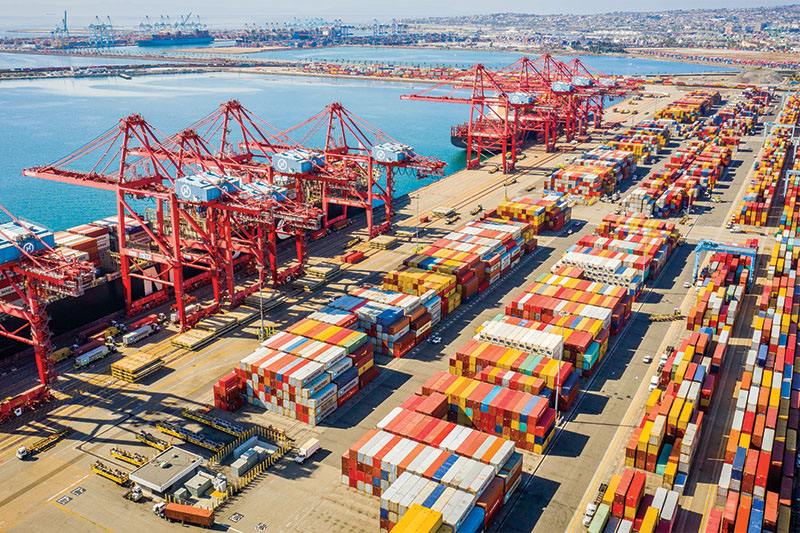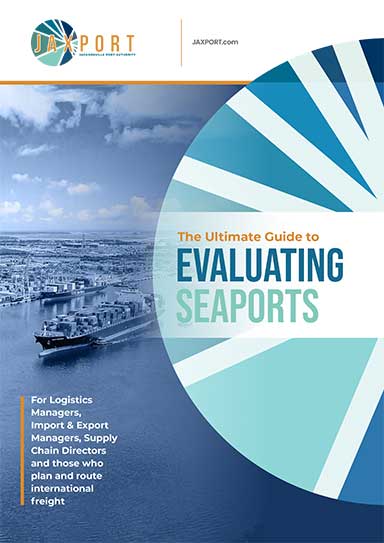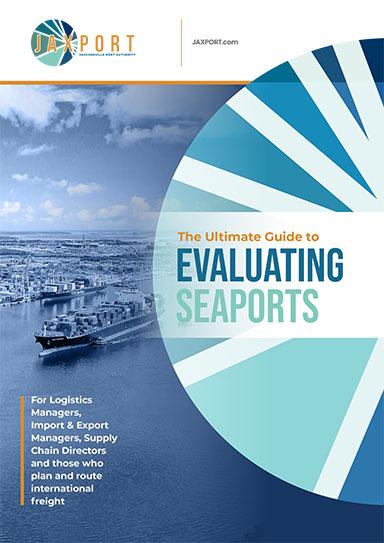POLA and POLB resume operations, following a brief ILWU work stoppage
The potential for a West Coast port labor stoppage looked like it was turning into a reality, with various reports issued late last week stating that the International Longshore and Warehouse Union (ILWU) withheld labor at the Port of Los Angeles (POLA) and the Port of Long Beach (POLB) before returning back to work on Saturday, April 8.
The contract between the ILWU, which represents port workers in California, Oregon, and Washington, with more than 30% of U.S. incoming container traffic moving through West Coast ports at the Ports of Los Angeles and Long Beach, according to industry estimates, and the Pacific Maritime Association (PMA), which represents shipping lines and terminal operators at 29 West Coast ports, expired on July 1, 2022, following negotiations that kicked off prior to that deadline on May 10, 2022.
“On Thursday, April 6, at 5:00 pm Pacific Standard Time, ILWU Local 13 crane operators and top handler drivers decided to reject their job assignments that were ordered by the employers for the evening’s second shift, impacting all Los Angeles and Long Beach terminals,” stated a customer advisory issued by Copenhagen, Denmark-based A.P. Moeller Maersk, an integrated container logistics services provider. “As a result, no operations were performed on the night shift. Every terminal in the harbor canceled all vessel, yard, rail and gate operations for the night shift with the uncertainty of not knowing if they would be able to resume for Friday's 1st shift.”
POLB officials said that four of its container terminals were closed for the entire day on Friday, with terminal operations shut down after workers did not report for work. And a POLB statement noted it is working with stakeholders, including federal officials, to “support a return to normal operations in the San Pedro Bay.”
Not long after the July 1, 2022 expiration of their current contract, PMA and ILWU said they came to terms on a tentative agreement on terms for health benefits, adding that the tentative agreement is subject to agreement on the other issues in the negotiations.
“The parties have agreed not to discuss the terms of this tentative agreement as negotiations continue,” said ILWU and PMA officials in a statement. “Maintenance of health benefits (MOB) is an important part of the contract being negotiated between employers represented by the PMA and workers represented by the ILWU.”
And earlier this year, in February, PMA and ILWU said in a joint statement that talks are continuing on an ongoing basis until an agreement is reached, and they remain hopeful of reaching a deal soon.
Late last month, a group of national industry associations, largely representing shippers and freight transportation and logistics services providers, called on President Biden, in a letter, to take action, regarding the still-unresolved West Coast port labor negotiations between the PMA and ILWU.
“The labor contract has now been expired for over eight months,” the letter stated. “Negotiations have been ongoing for over ten months, with little to no progress towards a new long-term agreement. It is imperative that the administration work with the parties to quickly reach a new agreement and ensure there is no disruption to port operations and cargo fluidity.”
The letter’s authors added that it is encouraging the White House to offer mediation services to the parties in their negotiations in order to alleviate the current situation, explaining that the lack of labor certainty has led to significant cargo flows shifting away from the West Coast. And they observed that while there are other issues impacting West Coast ports, supply chain stakeholders, or “cargo interests,” have indicated they have shifted cargo, due to the stalled negotiations.
“That cargo will not return to the West Coast until after a contract is final and approved by both parties,” the letter noted. “The longer there is no ratified contract only increases the probability that some portion of the freight will never return to the West Coast ports. Businesses have already made their shipping decisions for the all-important peak shipping season, which will begin this summer. Even though cargo volumes have dropped, we continue to experience supply chain stress and challenges. While many continue to recover from pandemic related issues, the ongoing stress of inflation and economic uncertainty continues to impact supply chain stakeholders as well.”
What’s more, going back to the middle of 2022, West Coast ports lost market share, due to the uncertainty of the timing of a new deal being reached, to East Coast and Gulf Coast ports, with shippers not wanting to have labor issues impact cargo flows.
Port of Los Angeles Executive Director Gene Seroka said on a recent media conference call that the PMA and ILWU have made it clear they remain committed to getting a deal done and will not go on strike. And he commended President Biden for being the first president to visit with both sides and their top negotiators last June on the USS Iowa, encouraging the parties to stay at the bargaining table and work through their issues. He also credited the U.S. Department of Labor for its efforts to develop strong business relationships with both parties.
As previously noted in LM, this is not the first time a contract between the organizations gone on following the end of an existing contract. And one does not have to go too far back to see how acrimonious negotiations were, as in 2015, in the months prior to the June 30 deadline, it required the U.S. Federal Mediation and Conciliation Service to step in to help the sides find a way to come to an agreement over stalled labor negotiations. What’s more, the ongoing tension between the parties subsequently resulted in hindered productivity and also was a contributing factor in port congestion on the West Coast, especially as it led up to the 2016 holiday season.
The PMA said, at the time, that the state of terminal productivity at the five largest West Coast ports was approaching gridlock, due in large part to what it labeled ILWU-staged shutdowns.
In commentary provided to LM, Spencer Shute, Senior Consultant at Proxima, a Chicago-based strategic team of procurement specialists with more than 25 years of consultation and supply chain experience, said that with news from the resumed communications being limited, coupled with the Congress intervention in the rail negotiations late last year, it is expected that the port labor unions will dig into their positions even more.
“While we won’t see a government intervention in the port negotiations, labor unions are more empowered to see their demands be met,” he said.
Addressing the logistical challenges of spreading imports along the East Coast and Gulf Coast, Shute noted that the initial shifting of volume created backlogs and delays at various ports on the East and Gulf Coasts.
“As demand and volume has declined over the last two quarters, ports have regained balance,” he said. “Gulf and East Coast ports have worked to improve efficiency, thru-put, and implemented many enhancements to accommodate additional volumes. All of which has resulted in limited long-lasting challenges from the volume shifts. The shift in volume has also shifted other supply chain modes and network footprints, particularly along the East Coast. New York/New Jersey ports have surpassed Long Beach/LA in terms of overall volume. This has created a bigger need for drayage, yard space, and trucking capacity to accommodate the increased volume. Because the volume shift wasn’t immediate, and with sailing times increased, other logistics modes have been able to adjust and adapt with more success, which is why we haven’t heard of major, long-lasting impacts.”













